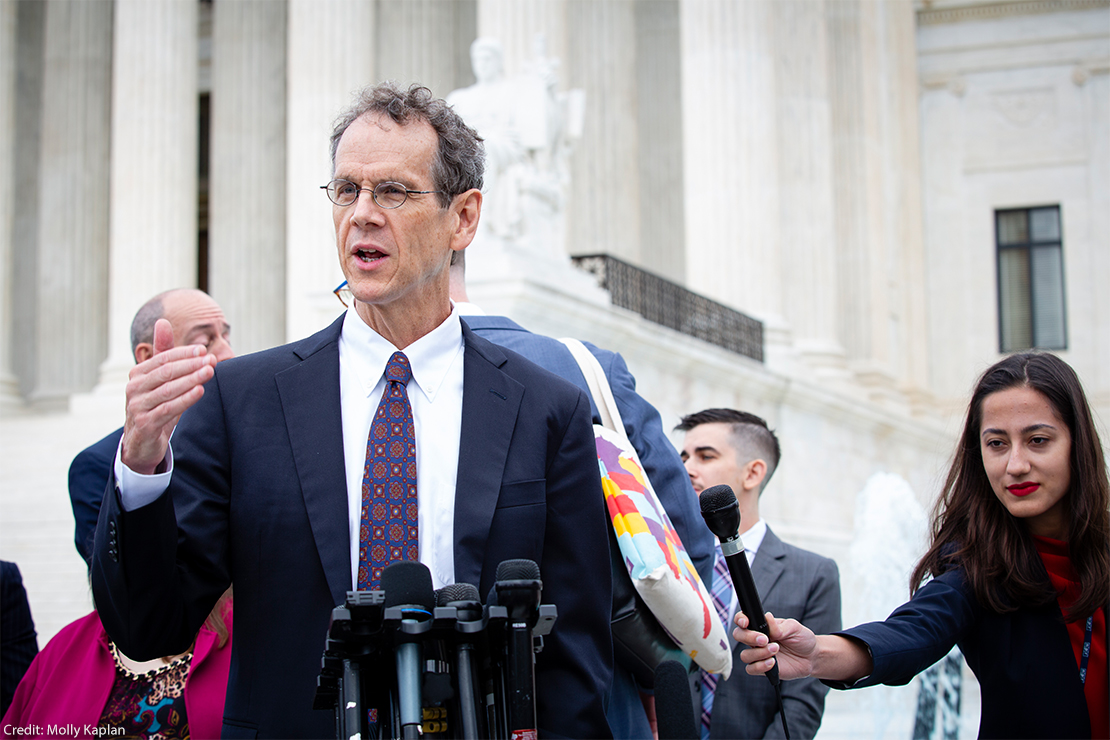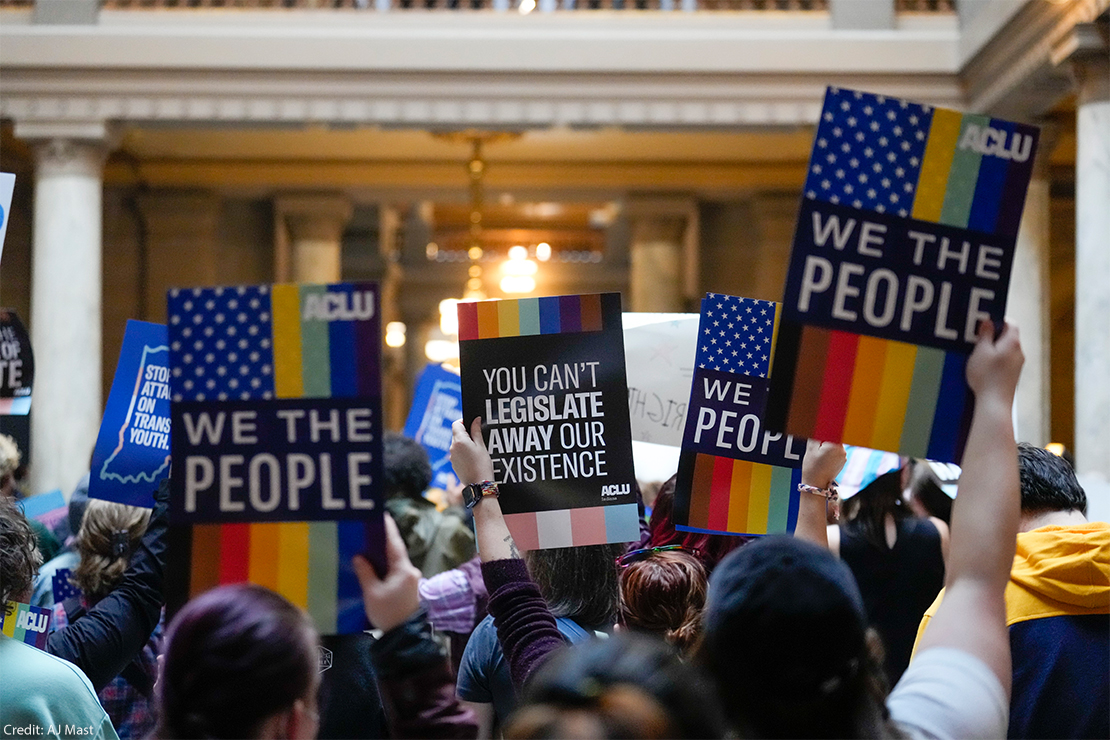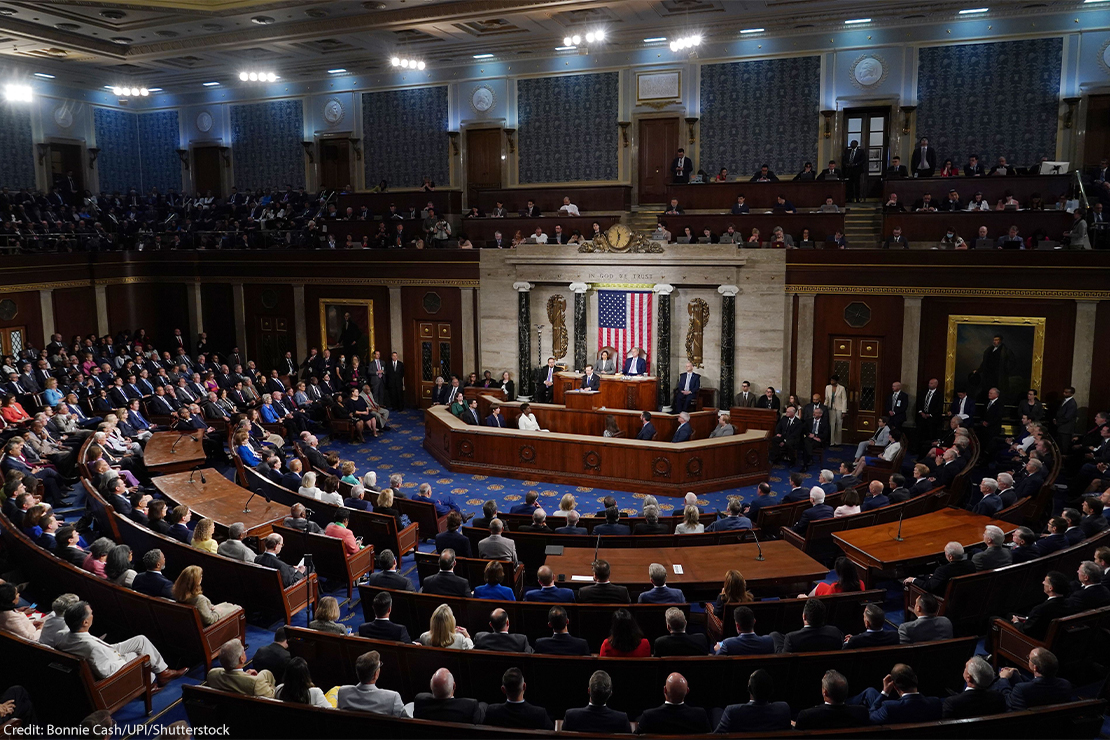Many polls suggest if the presidential election were held today, Donald Trump could return to the White House. Fears of irreparable threats to our democracy and freedoms are neither abstract nor hyperbolic.
We must believe Trump when he reveals his authoritarian plans for a second term and take these threats seriously. He has made clear he intends to deploy the military to crush protests; activate state national guards to deport millions of immigrants; build on his legacy of gutting reproductive freedoms by implementing a nationwide abortion ban; create a police state in which anyone who he views as an “enemy” is surveilled and our law enforcement are further empowered to use lethal force; and undermine the integrity of our elections.
Terrifying as these threats are, despair and resignation are not a strategy. We and our allies are prepared to fight back, informed by our experiences in his first term.
A Nimble Legal Strategy to Combat Every New Threat and Prevent Harm
ACLU Legal Director David Cole speaking in front of the Supreme Court building. The ACLU filed 434 legal actions against the Trump administration during his presidential term. Molly Kaplan/ACLU
The ACLU filed 434 legal actions against the Trump administration, and hundreds of other lawsuits were filed by sister organizations, state attorneys general and even private citizens.
We turned to the courts during Trump’s first week in office when we, with the International Refugee Assistance Project and other partners, filed the first lawsuit challenging Trump’s Muslim ban. We got our first win the day after Trump’s executive order was signed. As the administration pivoted to “perfect” its unconstitutional ban, we fought every subsequent version. Along with our allies, we defeated the first two iterations of the ban, and ramped up pressure for President Biden to revoke the third and final ban on day one of his presidency.
We employed a similar strategy when the administration started forcibly separating families at the southern border. Initially, we only wanted to reunite one mother and her daughter, but subsequently learned that the government had codified this horrific practice into standard policy. We quickly expanded our suit and did everything possible to have the full extent of this tragedy revealed to the public. We, Kids in Need of Defense, the Women’s Refugee Commission and Justice in Motion mobilized thousands of people to march in opposition. Under significant, sustained public and legal pressure, the administration finally reversed their family separation policy, with our lawsuit helping reunite approximately 3,200 families.
Litigation remains a powerful tool even in the face of Trump’s 245 judicial appointments. Much to his chagrin, many of his appointees proved willing to buck his agenda as Trump-appointed judges stood up nearly en masse for the rule of law and civil liberties in response to attempts to overturn the 2020 election results. Trump appointees also ruled against the administration’s anti-immigrant policies around Title 42 and the third-country transit ban.
Organizing Communities in the Streets
Protestors rally in support of trans rights at the Indiana Statehouse. AJ Mast/ACLU
Should Trump return to the White House, advocacy organizations will need to come together like never before. No single organization will be able to stop the power of the federal government at Trump’s disposal. If he unleashes a deportation force to remove 13 million immigrants or deploys the National Guard to crack down on demonstrations, we and our partners will be in court daily challenging these unconstitutional and immoral policies. But that’s not enough.
Even more so than the first, the second resistance will be one of the people, not just lawyers. We will activate our 6.5 million supporters and our 54 affiliates in every state and territory. In partnership with grassroots organizations, labor unions, religious congregations and community leaders, we will exercise our First Amendment rights to mobilize the people in the streets, lobby in their statehouses, and advocate for local leaders to resist. General strikes, economic boycotts, and worker walk-outs will be critical tools to demonstrate that Americans will not sit idly by while a constitutional crisis is perpetrated.
Fighting Back in Congress, State Legislatures, and on the Ballot
Congressional members seated for a speech at the US Capitol building. Bonnie Cash/UPI/Shutterstock
In a second Trump administration, the public must force Congress to serve as a co-equal branch of government, not the lap-dog of the executive branch. We have to hold Congress accountable to do its job—keeping the pressure on through calls, lobbying, and grassroots visits, reminding them they work for us.
But fixing a broken Congress can’t just come from the Democratic Party. With the future of our democracy at stake, we need a bipartisan commitment to govern. We’ve seen glimmers of it. If a group of bipartisan Senators found common ground to reform the antiquated Electoral Count Act—which would now prevent Donald Trump, or any president, from pressuring their vice president to refuse certifying election results—surely they can agree to update the two-centuries old Insurrection Act and ensure its not abused by President Trump to shut down legitimate forms of dissent and debate.
As we ramp up the pressure on our representatives, the ballot box is where the people will get the final say. The Supreme Court’s Dobbs decision overturning Roe v. Wade—all thanks to a new Trump majority on the bench—illustrated the extent to which states are our last line of defense to bring forth the will of the people on issues such as abortion. And wherever reproductive freedom has been on the ballot since, we’ve won. Since Dobbs, we spent more than $23 million in key elections to protect abortion rights. This year, that playing field has significantly expanded: there are abortion ballot measures under consideration in Arizona, Colorado, Florida, Missouri, Maryland, New York, Montana, Nebraska, and Nevada.
Admittedly, ballot initiatives won’t be enough if Trump enacts a nationwide ban that restricts abortion services everywhere. But direct democracy efforts, through state constitutional amendments and local elections, will send strong signals that a power grab by the federal government will not be tolerated, and help make a case on states’ rights and federalism that might convince even conservative judges to limit these power grabs.
Trump and his allies have spent the last four years plotting his return and revenge. They will be more organized, deliberate, and aggressive. But if Trump does return to the Oval Office, the first “resistance” will look tame by comparison. Trump’s anti-liberty and fundamentally anti-American policies will assuredly be met with the full firepower of the ACLU, the might of our allies, and the commitment of the American people.